I tried
jsonPayload.elapsed_ms > 5000
and I'm clearly getting a lexicographical comparison of the character "5" because I only see results that are "6", "7", "8", "9" (see final number per line, after the "200"):
I tried
double(jsonPayload.elapsed_ms)>5000
as well but doesn't seem to be the right syntax.
There's a whole section on conversions here but no examples.
